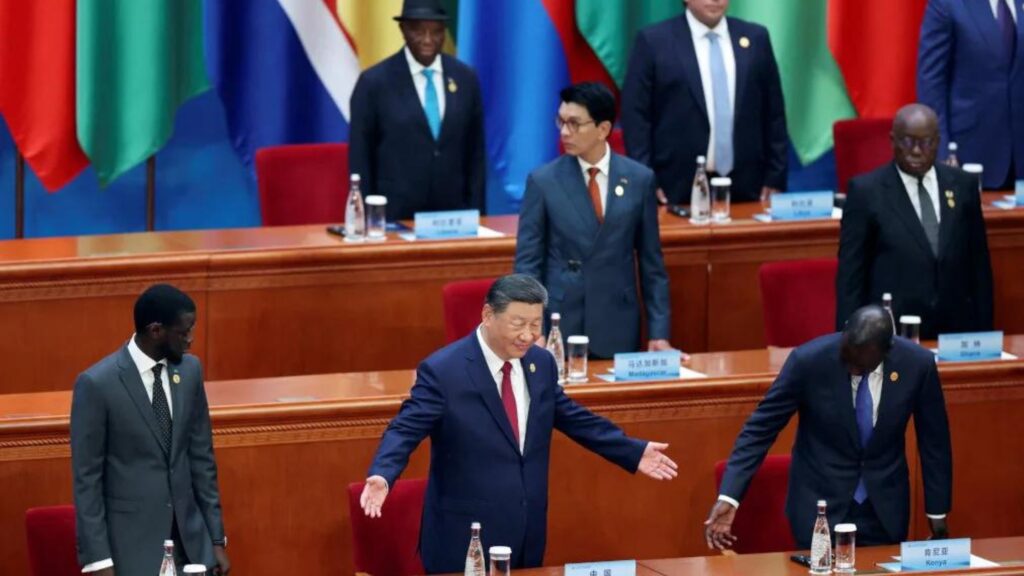In a landmark declaration that underscores China’s growing influence and commitment to Creating One Million Jobs in Africa, Chinese President Xi Jinping has pledged to generate one million jobs across the continent. This significant promise, made during the recent Forum on China-Africa Cooperation (FOCAC) summit, aims to bolster Africa’s economic development and enhance the socio-economic fabric of numerous nations.
The announcement was made amidst a backdrop of increasing geopolitical and economic engagement between China and Africa. Over recent years, China has emerged as a major player in Africa, investing heavily in infrastructure, trade, and development projects. This latest pledge marks a new chapter in China’s commitment to supporting African nations, with job creation at the heart of its strategy.
A Strategic Commitment
Xi Jinping’s pledge comes at a critical time when many African countries are grappling with high unemployment rates and economic challenges. The promise of Creating One Million Jobs is not just a symbolic gesture but a strategic commitment aimed at addressing these pressing issues. By focusing on job creation, China is positioning itself as a key partner in Africa’s development journey, offering a solution that directly impacts the livelihoods of millions of people.
The FOCAC summit, held in Beijing, saw leaders from across Africa and China come together to discuss mutual interests and collaborative opportunities. Xi’s announcement was met with enthusiasm from African leaders, who see this initiative as a crucial step towards economic stability and growth. The jobs are expected to span various sectors, including manufacturing, technology, agriculture, and services, reflecting a broad and inclusive approach to employment generation.
Economic and Social Implications
The impact of creating one million jobs in Africa could be profound. Economically, the initiative is expected to stimulate growth by increasing purchasing power and driving consumer demand. This, in turn, could attract further investments and support local businesses, creating a positive cycle of economic activity.
Socially, the job creation pledge has the potential to transform communities. Employment can lead to improved living standards, better access to education and healthcare, and enhanced social stability. For many African countries struggling with unemployment and underemployment, this initiative represents a significant opportunity to address these issues head-on.
Furthermore, the creation of a million jobs aligns with the United Nations’ Sustainable Development Goals (SDGs), particularly Goal 8, which aims to promote sustained, inclusive, and sustainable economic growth, full and productive employment, and decent work for all. By supporting job creation, China is contributing to a global effort to improve economic outcomes and reduce poverty.
China-Africa Relations: A Growing Partnership
China’s commitment to Africa is part of a broader strategy to deepen bilateral relations. Over the past two decades, China has become Africa’s largest trading partner and a leading source of foreign direct investment. This relationship has been characterized by significant infrastructure projects, including roads, railways, and energy developments, which have helped to lay the groundwork for economic growth in the region.
The focus on job creation represents a shift towards more sustainable and people-centered development. While infrastructure investment has been crucial, job creation addresses the immediate needs of the workforce and provides long-term economic benefits. By integrating job creation into its partnership with Africa, China is enhancing the quality and impact of its engagements on the continent.
Implementation and Expectations
The successful implementation of the job creation pledge will depend on several factors, including effective coordination between Chinese and African governments, as well as the involvement of private sector players. Both sides will need to collaborate closely to ensure that the Creating One Million Jobs are meaningful, sustainable, and aligned with local needs.
African countries will be tasked with identifying and preparing for the opportunities that arise from this initiative. This may involve developing skills and training programs, improving business environments, and fostering entrepreneurship. By working together, China and African nations can maximize the benefits of this commitment and achieve significant progress towards their shared goals.
Challenges and Opportunities
While the pledge is promising, it also comes with challenges. The scale of creating one million jobs requires substantial planning and execution. Ensuring that these jobs meet quality standards and contribute to sustainable development will be crucial. Additionally, there may be concerns about the nature of theCreating One Million Jobs and whether they will address the diverse needs of Africa’s young and growing population.
However, these challenges also present opportunities. The focus on job creation can drive innovation and lead to the development of new industries and sectors. It can also encourage the growth of local businesses and Creating One Million Jobs a more dynamic and resilient economy.
Looking Ahead
As China and Africa continue to strengthen their partnership, the commitment to creating one million jobs represents a significant step forward. It reflects a mutual desire for growth and prosperity and highlights the potential for collaborative solutions to global challenges.
The coming months and years will be crucial in realizing this pledge. Both China and African nations will need to navigate the complexities of implementation, address potential challenges, and work together to ensure that the benefits of this initiative are widely felt.
In summary, Xi Jinping’s commitment to creating one million jobs in Africa is a bold and strategic move that underscores the evolving nature of China-Africa relations. It offers a promising path towards economic growth, social development, and strengthened partnerships, with the potential to transform lives and build a more prosperous future for the continent.
